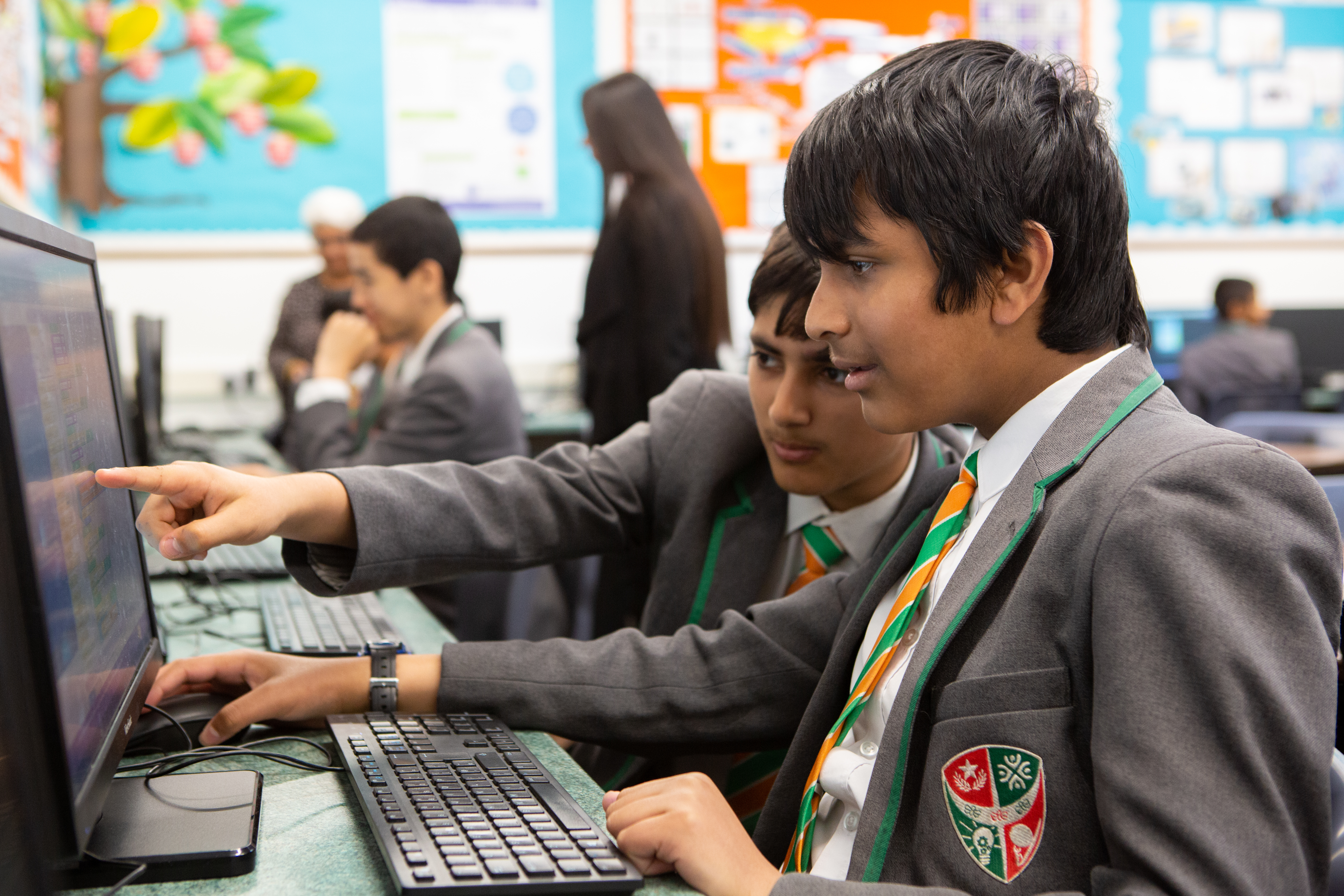How student-driven learning encourages greater engagement in computing
A 2022 Impact Journey Case Study
We know how important teaching Computer Science is to equip young people with the skills they need for future careers. Yet, according to a recent survey 64% of STEM teachers said they had limited access to computer science resources. Teachers tell us that Computer Science courses are often too abstract and technical, which makes it difficult to engage the majority of students. This makes it incredibly important to give computational thinking and coding a context that is relevant to young people.
All of our courses are designed to promote student-driven learning to encourage young people to think for themselves and develop their own ideas, rather than simply follow instructions. Our user feedback suggests that students and teachers value how our courses embrace student-driven learning and enable them to explore topics that are meaningful and relevant in their lives.
Unleashing their potential at Challney High School for Boys
Humza, Mahdi, Saimun and Hasnain are year 8 students at Challney High School for Boys in Luton. They studied Innovate for Climate Change in 2022, which was delivered during after school club sessions.
Working as a team, the boys created Carbon GPS, a Showcase award winning idea, designed to track your carbon emissions for better carbon conscious decisions. When asked what they liked about Apps for Good, one of the boys described it as ‘liberating’ - being given the freedom to come up with their own ideas to tackle climate change. “It was really good creating an app and then coming up with the idea, instead of just being told what to do and learning it. We were learning it for ourselves and working it out for ourselves”.
After 12 years of creating student-driven courses, we’ve seen the positive impact of enabling students to solve problems that they care about. It can instil a powerful sense of ownership and autonomy in young people, encouraging them to become responsible citizens. Not only do these benefits help ease the transition from the classroom to life after school, but by focusing on social challenges, our courses also raise awareness about technology as a force for good and inspire young people to want to create positive change.
Head Teacher, Daniel Connor said, “I think one of the great benefits of the Apps for Good programme is the way it blends together learning about the technology, which is developing all the time and is going to be required in most work settings in the future for any settings that our students work in, and blends that with the notion of growing up to be a citizen.”
The boys didn’t underestimate the importance of the role of technology either, commenting that, “Being able to essentially make a difference and affect the world with just a simple app. Being given that opportunity I think was really great - not for just us, but because we can help everyone.”

Bhadra Kara is the Assistant Subject Team Leader in Computing at the school and has been delivering Apps for Good courses for several years. Bhadra believes that one of the reasons students respond really well to the course is because they work collaboratively, choosing their own teams, their own ideas and are really determined to achieve.
In addition to developing their coding skills, Saimun and his team mates learnt a lot about climate change and were inspired to pursue climate focused careers. He told us, “I learnt a lot about carbon dioxide emissions - it made all of us more aware. It makes me want to do more and get engaged with something in that climate field.”
They also learned a lot about themselves and what motivates them to learn, saying, “We were all working together, sending each other messages after school, getting everything ready. It was all really good work. And we helped our team work, and also friendship as well – it made us stronger and closer together.”
Since taking our Innovate for Climate Change course, Humza, Mahdi, Saimun and Hasnain have all chosen to take Computer Science GCSE and took up coding as a hobby, making websites and apps. They have also embraced their new found confidence and went on to deliver many more presentations, including one to all of the head teachers in their Academy Trust.
Looking to life beyond school, the Carbon GPS boys are all interested in pursuing careers in tech, telling us how much they enjoyed coding with a purpose and seeing an output. They also remarked on how their view of technology has changed and can have a positive impact on people’s lives and communities.
Summarising the impact of student-driven learning, Head Teacher Daniel Connor said, “I've always felt that one of the most underused resources in schools is the students themselves. Because increasingly, I find throughout my career that the higher you set the bar, the more you expect from children and young people, they will always reach it and usually go beyond it as well.”
In 2023, we’ll continue to support young people to become responsible citizens and encourage student-driven learning in computing through a brand new course - App for Social Action. Follow our social media and website for more information.